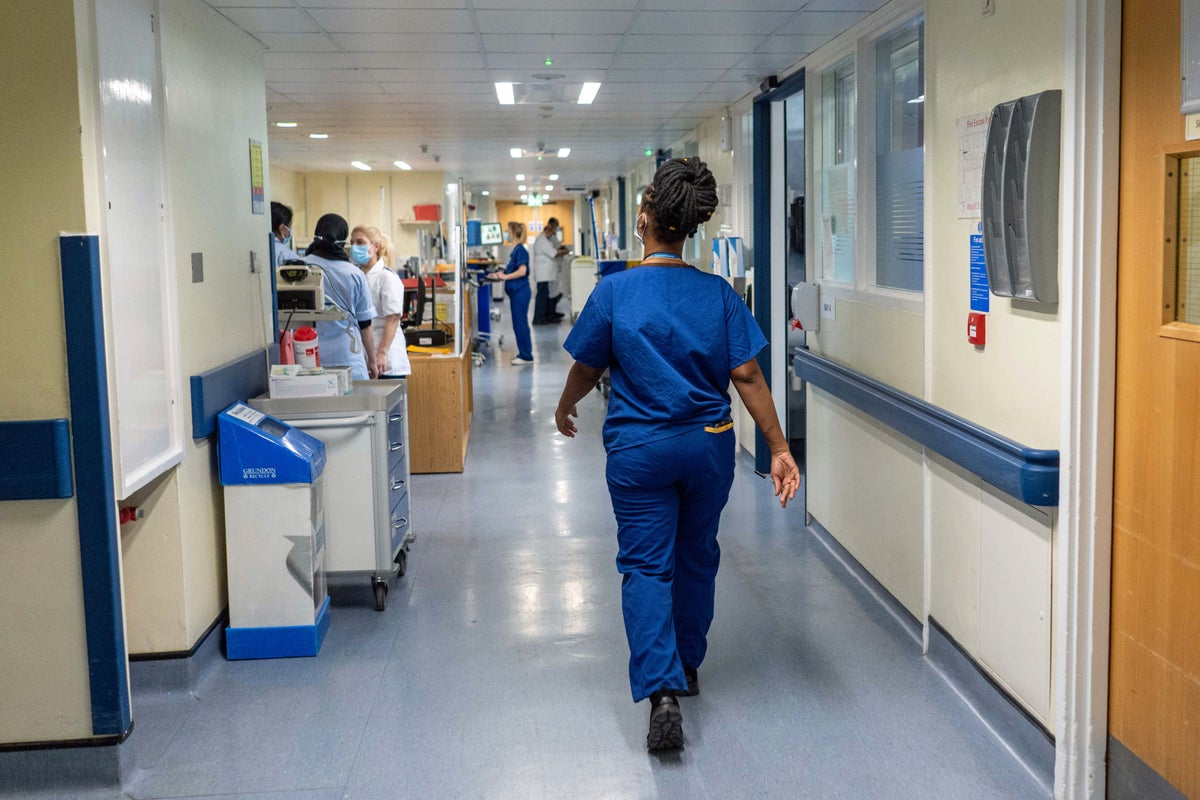
Ministers desperate to plug NHS shortages are floating plans to shorten doctors’ training by a year.
The radical plans would see doctors’ degrees reduced from five to four years, while nursing students could be fast-tracked to be qualified in just two-and-a-half years.
Critics warn the move would put patient safety at risk and even drive would-be doctors and nurses away from the NHS – worsening the shortages the plan is designed to solve.
One source warned that the government was focusing too much on recruiting new workers rather than retaining the current experienced workers needed to supervise students.
The proposals may form part of the much-anticipated NHS workforce plan, which is also expected to give approval to doctor apprenticeships with people learning on the job while studying.
It was due to be published next week but has been delayed, The Independent understands.
One NHS source, who has been briefed on the condensed degree plans, said: “It just shows they’re only focusing on supply. Inexperienced people don’t perform at the same level in healthcare as experienced [staff] do, so that’s an issue around safety.”
Another NHS source said: “There’s a push to get as many nurses through as possible.
“I despair, the reason a [nurses’ degree] programme is three [years] is because this is how we are regulated. The change in education that is needed is going to require a regulatory body to approve that, and that is a consultation process and that can’t be done overnight."
However, one source explained that shorter medical degrees would still have to be of the same quality and be approved by the medical regulator, the General Medical Council, so doctors meet the same standards.
Professor David Strain, BMA medical academic staff committee chair, said the union was “very concerned” that attempts to “squeeze” a five-year undergraduate degree into four years could compromise education and training standards.
He said: “Medical students already work flat out to acquire the knowledge and skills needed to graduate and become junior doctors – and it would neither be fair on students nor safe for patients to expect them to complete their degrees in even less time.”
“There would be significant concerns that any further modification of this very busy course would result in doctors who did not have the skillset themselves teaching future generations of healthcare practitioners, or the necessary exposure to cement the UK’s future as a global centre for research excellence,” he added.
Royal College of Nursing chief nurse Nicola Ranger said: “Training on the job or spending less time in education are both high-risk moves that could compromise the supply of highly skilled nursing staff needed.
“The real issue is the shortage of students, not the time it takes. The policy to fix these shortages is to cover the tuition fees and costs of the university for nursing students to rapidly boost numbers.
“Instead of fast-tracking degrees, ministers should commit to investing in nurse education and provide a fully funded plan to recruit and retain the nurses needed to safeguard the future of the NHS.”
Crystal Oldman, chief executive for the Queen’s Nursing Institute, which represents community, district and GP nurses told The Independent: “How are you going to ensure that those nurses who go through a shortened programme meet the requirements of the registered nurse and come out confident and competent and don’t jump out of the workforce because they’re not properly prepared?
“Evaluating a pilot will be absolutely critical to that, and not going wholesale across the country with it.”
A Department of Health and Social Care spokesperson said it was continually improving medical and nursing training and had already introduced blended online nursing degrees and medical and nursing apprenticeships, alongside increasing the number of hours of simulated training to provide greater flexibility.
“The NHS will shortly publish a long-term workforce plan to go even further, including projections for the number of nurses and other professionals we will need in five, 10 and 15 years’ time,” they said.
An NHS spokesperson said: “Training at medical school can last between four and seven years depending on the route taken and nursing qualifications can also be accelerated. The workforce plan will shortly set out a wide-ranging set of recommendations to ensure the future needs of the NHS are met.”







